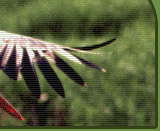International Peatland course in Latvia and Finland From July 15-25, 2009 the International peatland training course was organised in Latvia and Finland. In the training course 25 young mire scientists/students and researchers from NGOs and other institutions took part, representing Finland, Latvia, Estonia, Belarus, The Netherlands and Poland. Well-known peatland researchers participated in the eco-hydrological research in the field. By learning on the spot the landscape-ecological relationships between the hydrological functioning of the peatlands and the occurrence of endangered plant and animal species were investigated. The course was run under the guidance of 9 teachers from 7 institutions and 4 counties - Dr. Māra Pakalne (Latvian Fund for Nature), Dr. Raimo Heikkilä (Finnish Environment Institute), Dr. Tapio Lindholm (Finnish Environment Institute), Dr. Tapani Sallantaus (Finnish Environment Institute), Prof. Harri Vasander (University of Helsinki), Ilze Rēriha (Slītere National Park), Prof. Albert Grootjans (University of Groningen), Prof. Leslaw Wolejko (West Pomeranian University of Technology), and Gert-Jan van Duinen (Radboud University Nijmegen). Lecturers | 
| 
| 
| 
| 
| | Dr. Māra Pakalne
(Latvia) | Prof. Ab
Grootjans
(Netherlands) | Prof. Leslaws
Wolejko
(Poland) | Dr. Raimo
Heikkilä
(Finland) | Dr. Tapio
Lindholm
(Finland) | | 
| 
| 
| 
| | Prof. Harri
Vasander
(Finland) | Dr. Tapani
Sallantaus
(Finland) | Ilze Rēriha
(Latvia) | Gert-Jan
van Duinen
(Netherlands) | The Peatland course dealt with: - quick scan eco-hydrological analyses to assess important hydrological relationships on the landscape-scale (where does the groundwater come from, which are the causes of water loss)
- study of climate influence (temperature and precipitation) on hydrological and geochemical processes in bogs and calcareous fens (what will happen during global change?)
- technical aspects of mire restoration,
- tactics how to convince local stakeholders to invest in conserving mires for ecotourism,
- combining bio fuel production with nature conservation,
- preventing fires in drained peatlands by rewetting (and how to trade CO2-emissions).
The training course started with a series of lectures by peatland experts in hydrology, vegetation, geology, peatland restoration that were continued by carrying out practical research activities. During the peatland course the peatland experts from Latvia, Finland, Belarus, Estonia, the Netherlands and Poland shared their experience in peatland eco-hydrological studies, realisation of peatland conservation and management actions in Latvia and Finland. Most experts are members of the International Mires Conservation group (IMCG; see www.IMCG.net), which is the world organisation for the projection of mires. The invited experts had extensive and long lasting experience in peatland protection and peatland research. Many of them have been involved in international projects on peat restoration. During the course field studies were carried out in the Slitere National Park, Gauja National park, Cena Mire Nature Reserve, Engure Lake Ramsar Site, Kalkupe River Nature Reserve and Rauna Staburags Nature Reserve in Latvia and Suurisuo and Taipensuo Mires in Finland. The sites consist of various mire complexes with gradients between groundwater and rainwater fed mires and with well developed spring mires with chalk deposition.
The International Peatland course started in Latvia on July 15 with the introductory lectures by Dr. Mara Pakalne, Prof. Albert Grootjans and Prof. Leslaw Wolejko. After the lectures the participants of the course went to Cena Mire Nature Reserve where the mire restoration issues were discussed and peatland observed in the field.
Further, the peatland course continued in the Slitere National Park and Kalķupe River Nature Reserve where from July 16-18 spring and inter-dune mires were studied. In the transects the students under the guidance of the teachers studied the eco-hydrological processes in the mires by carrying out ecological, hydrological, geological and vegetation studies that had not been made before in the inter-dune and spring mires in the Slitere National Park. On the way to the Gauja National Park, the participants of the peatland course visited Engure Lake Ramsar site. Peatland course in Cena Mire Peatland course in the Slītere National Park Peatland course in Engure Nature Park Peatland course in the Gauja National Park Peatland course in Finland Māra Pakalne | 






